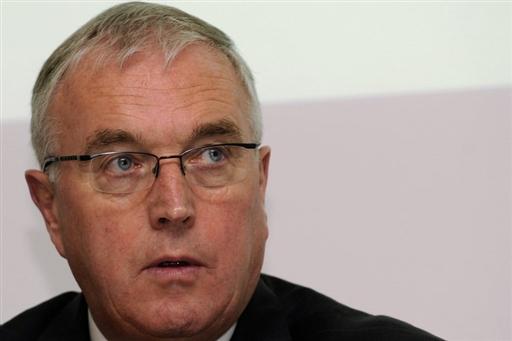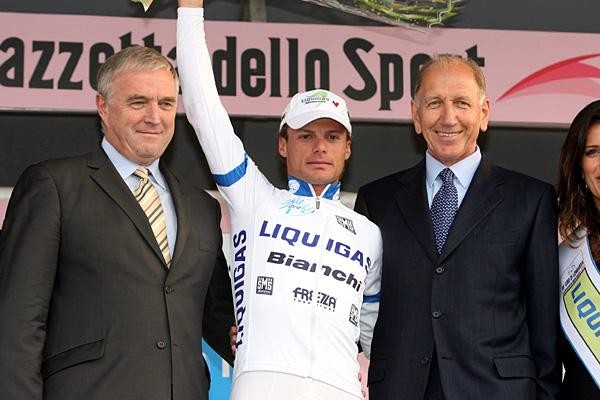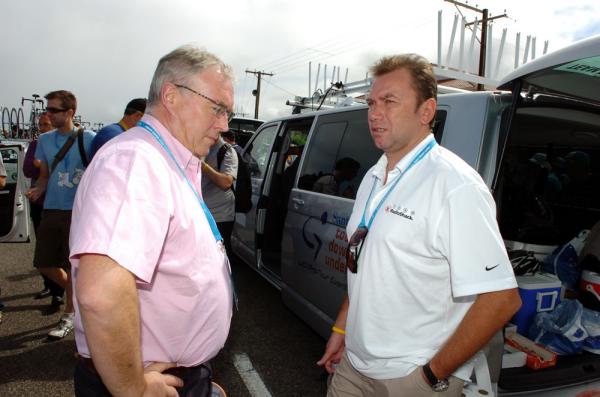McQuaid says a decision on Contador is fast approaching
UCI President reiterates call for four-year bans



International Cycling Union president Pat McQuaid has revealed that a decision on whether Alberto Contador should be investigated for doping is fast approaching but depends on a special report from the World Anti-Doping Agency.
“We’re waiting for WADA to come back to us with a report. As soon as we get that, we’ll take decisions within hours,” McQuaid told the Associated Press news agency during the Global Sports Industry Conference in London. “I think the point might be fast approaching.”
“We’re working with WADA. Our scientific people and their scientific people are working together to try to determine how the Clenbuterol got in the system.”
Traces of the banned drug were found in a urine sample Contador gave on the second rest day of the Tour de France on July 21. The UCI informed Contador that he had tested positive on August 24 but the news was only made public on September 30.
The Spaniard claimed that the traces of Clenbuterol were caused by contaminated meat he ate during the Tour de France. He also denied reports that traces of plasticisers reportedly found in a blood sample indicated he may have blood doped during the Tour. McQuaid insisted that he did not know if the WADA investigation was looking for plastic residues in Contador’s samples.
Four year ban
If found guilty of doping, Contador would face a two-year ban and lose his Tour de France victory. However McQuaid reiterated his calls for four-year bans for doping after several riders had their bans cut for providing information to police and investigators.
The latest race content, interviews, features, reviews and expert buying guides, direct to your inbox!
Italy’s Danilo Di Luca tested positive for the banned blood booster CERA while winning the 2009 Giro d’Italia. He was initially given a two-year ban but that was recently cut to 15 months on appeal in Italy.
“I’m increasingly going for four years because two years is very quick. An athlete returns to the peloton very quick. I think it’s unfair to the clean athletes that guys who have cheated in premeditated cheating can come back so quickly,” McQuaid said.
The WADA anti-doping code already allows for four-year bans and McQuaid has instructed the UCI anti-doping investigators to pursue four-year penalties and called on national federations to do the same when they investigate athletes.
McQuaid again defended cycling’s record in the fight against doping.
“At least cycling has made the statement that we’re serious about getting rid of dopers,” he said. “You can take a sort of fatalistic view and say, ‘Yes the sport’s been damaged, the credibility of the sport has gone down.’ But you can also take the view that more and more people are taking—that we’re a sport that is actually going and doing something about it.”
“We’re testing. We’re testing in great detail, in great numbers, and we’re catching athletes. We’re not afraid to catch an athlete, big or small. It’s transparent. It’s open. All the results come to us and go to WADA. We’re doing our damnedest to catch cheats.”

Stephen is one of the most experienced member of the Cyclingnews team, having reported on professional cycling since 1994. He has been Head of News at Cyclingnews since 2022, before which he held the position of European editor since 2012 and previously worked for Reuters, Shift Active Media, and CyclingWeekly, among other publications.